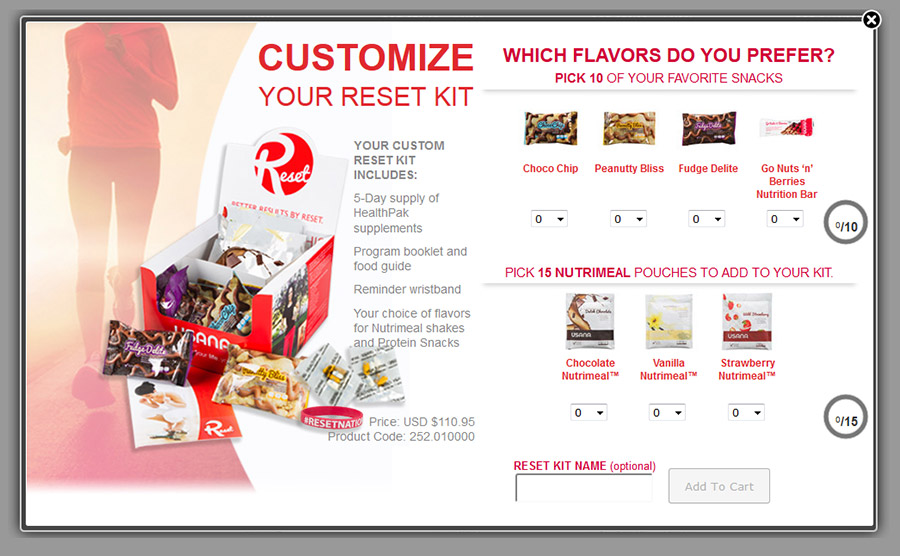At a Glance:
A new study confirms the safety of calcium supplementation in adult women, and fails to show any association between calcium supplementation and an increased risk of heart disease.
Read More About This Research Below:
Osteoporosis has been called the silent killer and affects nearly 50 million Americans to some degree. Because of this, calcium supplementation has been widely recommended since much of the population falls short of dietary recommendations. However, some reports published during the past several years have argued that supplement use may increase the risk of cardiovascular disease.
In a new study published in Osteoporosis International, researchers examined the independent associations between supplementation of calcium and cardiovascular disease (CVD) risk. CVD includes coronary heart disease (CHD) and stroke. The researchers took information from a very large prospective study of 74,245 women in the Nurse’s Health Study. All women were free of CVD and cancer at the beginning of the study, and calcium supplement intake was assessed every 4 years. One significant advantage to this study is the long follow-up time (24 years) and large number of cardiovascular events (4,565) from which to draw potential associations.
The research failed to show any independent associations between calcium supplementation and the risk of CVD. In fact, after adjusting for age, BMI, dietary calcium, vitamin D intake, and other CVD factors, the women who supplemented with a dose of at least 1 gram per day had an 18% lower risk of CVD than those who did not use calcium supplements. There was no significant difference in the risk of stroke incidence between the groups, but the women taking calcium supplements had a 29% lower risk of CHD than non-supplement users.
The findings of this large prospective study do not support the assertion that calcium supplementation increases the risk of CVD in women.
Paik JM1, Curhan GC, Sun Q, Rexrode KM, Manson JE, Rimm EB, Taylor EN Calcium supplement intake and risk of cardiovascular disease in women. Osteoporos Int. 2014 May 7. [Epub ahead of print]
Source: USANA Health Sciences Essentials of Health
Canada’s anti-spam law will change the way you communicate to your potential customers and teammates. After July 1, 2014, almost all unsolicited electronic messages that encourage participation in a commercial activity—in your case, marketing the USANA products or opportunity—are prohibited.
This means you will need to receive permission from or have a prior relationship (business, personal, or family) with anyone you contact in Canada about USANA. The penalties for non-compliance may include fines of up to $1 million, and recipients of non-compliant messages can sue senders for an additional $200 per message.

Let’s go through what this means for your business and how you can comply with the law.
Types of Communication Affected By the Law
- E-mails
- Texts
- SMS
- Instant messages
The law does not apply to voice mail, telephone calls, facsimile messages, or auto-recorded voice calls.
Getting Permission
Under the law, you are allowed to contact anyone with whom you have a previous business, personal, or family relationship. You will be able to send messages to other Associates and all of your active customers.*
For everyone else, you’ll need express consent in order to contact them about USANA’s products or opportunity. You can do this via an opt-in or subscription function, or by simply having people send you a message giving you permission to communicate with them about the products or opportunity.
Something like this works just fine: “I, (recipient’s name), give (your name) permission to send me messages about USANA’s products and opportunity.”
And we will be helping you stay compliant by keeping your contact lists as current as possible. Inactive customers will be removed if they don’t purchase anything for six months after enrolling as a customer, or after two years of purchase inactivity.
Contacting Referrals
Sometimes in building your business, you need to contact referrals—people with whom you have no prior relationship. You are allowed to send them a message if all the following circumstances apply:
- You have a business, personal, or family relationship with the person making the referral.
- The person making the referral has a business, family, or personal relationship with the person being referred.
- You disclose the name of the person making the referral in the message to the recipient.
- You receive an opt-in or other permission to continue contacting them.
Crafting a Compliant Message
Even after you have permission to send an electronic communication, there are a few things to keep in mind when actually writing your message. The law requires all electronic business communications to contain the following:
- A non-misleading subject line and content that isn’t false or misleading in any way.
- The identity of the person sending the message, including the full name, sender’s mailing or postal address, and the sender’s phone number or e-mail address.
- A valid and working unsubscribe mechanism.
5 Simple Ways to Stay Compliant
Laws can be pretty complicated things. But if you do these five things, you will have no problems abiding by Canada’s anti-spam law.
- Receive consent—via opt-in or subscribe function—or other permission to contact others about the USANA products or opportunity.
- Keep a record of all the permissions you have acquired from members of your contact list.
- Collect permission from your customers and members of your team just to be safe and keep your contact lists current.
- Obey the rules for contacting referrals.
- Write compliant messages that contain all the required information.
Our Commitment to Compliance
The anti-spam law also affects the way we communicate with you and new members of the USANA family. We have taken steps to comply with the law, including frequently removing inactive accounts from our mailing lists and adding a messaging opt-in to our purchase agreement, giving us permission to contact all new customers and Associates.
* An active customer is one with whom you have an existing business relationship based on one or both of the following:
- The purchase of a product, goods, or a service within the two-year period immediately before the day on which the message is sent.
- An inquiry or application within six months after receipt of the inquiry or application.
 Personalization—it’s all around you. Your home screen, computer apps, and even your workout program are all set to fit your lifestyle. Now it’s time to personalize your diet, and we’ve got just the thing to help you do it—introducing our all-new Custom RESET™ Kit (item #252).
Personalization—it’s all around you. Your home screen, computer apps, and even your workout program are all set to fit your lifestyle. Now it’s time to personalize your diet, and we’ve got just the thing to help you do it—introducing our all-new Custom RESET™ Kit (item #252).
This new kit gives you the freedom to pick and choose exactly what you want to eat.
To show you how easy it is to create your own customized weight-management kit, we’ll walk you through it, step by step.
First, sign in to the USANAtoday shopping cart and select the Custom RESET Kit.
Next, pick 10 snacks in any combination of Fudge Delite™, Peanutty Bliss™, Choco Chip™, or Go Nuts ‘n’ Berries. Then choose 15 Nutrimeal™meal-replacement packets in any combination of French Vanilla, Dutch Chocolate, or Wild Strawberry:
Add it to your cart, and voila!
A RESET Kit, just the way you like it.
Get the word out about the latest in personalization, and create your own Custom RESET Kit today.
At a Glance:
In response to an editorial labeling multivitamins as useless and potentially harmful, nutrition experts conclude that multivitamins are a safe, inexpensive and effective method of filling nutritional gaps in the average, nutrient poor diet, and can potentially reduce the risk of some chronic diseases.
Read more about this research below:
In an editorial published several months ago titled “Enough is Enough”, five medical doctors declared that dietary supplements were unnecessary, had no clear benefit, and might even be dangerous. Because of the controversial nature of the editorial, and because it was published in a respected journal, it received a lot of media attention.
In a new editorial published online in the same journal, Annals of Internal Medicine, four of the most respected names in public health and nutrition have responded and stated that decades of nutrition research and diet monitoring were ignored to come to the misleading conclusion. The experts, representing the Linus Pauling Institute, Children’s Hospital Oakland Research Institute, Tufts University, and the Harvard School of Public Health reasoned that multivitamins help fill nutritional gaps, improve general health, may help prevent chronic disease, are generally harmless, and relatively inexpensive.
While nearly all nutrition experts agree that a balanced and nutritious diet is the best way to get essential nutrients, they also state that it is naive to ignore the fact that most people in the U.S. are not meeting recommendations for dietary intake of all vitamins and minerals and micronutrient inadequacies are more the rule than the exception.
Less than 7% of adults in the U.S. get the estimated average requirement of vitamin D and E from their diet; only 39% get enough magnesium; and only about half get the minimum recommended intake of calcium and vitamin A. Nearly three-fourths don’t get enough vitamin K, and 98% don’t get adequate potassium from their diet. The elderly, African Americans, obese individuals, and those who are ill or injured may have even more difficulty meeting minimum nutrient intakes.
In addition to simply filling in nutritional gaps and supporting normal health, the potential for micronutrients to help reduce or prevent chronic disease has shown promise. Recently, the Physicians’ Health Study II, the largest randomized controlled trial on multivitamins ever conducted, found statistically significant reductions in both cancer incidence and the risk of cataracts among male physicians taking multivitamins regularly.
The new editorial also addressed the fact that concerns over increased mortality or harm from vitamins A and E have been based on extremely high use through supplements beyond the dosages typically found in multivitamins.
It is well-known that vitamin A (as retinol) should not be consumed long-term at levels above the Tolerable Upper Limit. But, in reality, only about 1% of supplement users exceed vitamin A upper limits through supplementation. The trials reporting that high-dose vitamin E supplements increase mortality have been since refuted by several more comprehensive studies.
The experts conclude – “To call the case closed; deny the value of further research; and label multivitamin and mineral supplements useless, harmful, and a waste of money is wrong, is not based on the established science for their primary indication, and misinforms the public and the medical community.”
Frei B, Ames BN, Blumberg JB, Willett WC. Enough is enough. Ann Intern Med. 2014 Jun 3;160(11):807. doi: 10.7326/L14-5011.
Source: USANA Health Sciences Essentials of Health
At a Glance:
In a newly published meta-analysis probiotics, specifically lactobacillus and bifidobacterium strains, decreased the length and severity of the common cold in otherwise healthy children and adults.
Read more about this research below:
According to the U.S. Centers for Disease Control, respiratory infectious disease results in significant health and economic burden on society with over 20 million school days and adult workdays a year lost to the common cold. Several studies have evaluated the effectiveness of probiotics on the symptoms and incidence of common infectious respiratory diseases.
In a new study published online in the British Journal of Nutrition, researchers reviewed research on the effect of probiotics on the duration of acute respiratory tract infections (RTI) in otherwise healthy children and adults.
In this meta-analysis, researchers identified twenty randomized controlled trials of good quality from eight medical and scientific databases. Only studies utilizing lactobacillus and bifidobacterium strains were analyzed. In the included trials, three main outcomes were reported: duration of illness episodes; number of days of illness per person; and absenteeism from day care/school/work.
These results show that when compared to participants that didn’t take probiotics, the duration of illness episodes was decreased between one half to one day in those that took probiotics. Subjects that used probiotics also reported significantly fewer days of illness per person and lower absenteeism from day care/school/work than those who had taken a placebo.
This new review provides evidence that probiotics, specifically lactobacillus and bifidobacterium strains, may reduce the duration and severity of respiratory tract illnesses in otherwise healthy children and adults.
King S, Glanville J, Sanders ME, et al. Effectiveness of probiotics on the duration of illness in healthy children and adults who develop common acute respiratory infectious conditions: a systematic review and meta-analysis. Br J Nutr. 2014 Apr 29:1-14.
Source: USANA Health Sciences
News Release
SALT LAKE CITY, June 10, 2014 /PRNewswire/ -- Are your vitamins regulated? On a mission to advocate supplement regulation and the health industry as a whole, on a global scale, USANA Health Sciences Inc., has joined the Canadian Health Food Association. CHFA is the largest trade organization in Canada - dedicated to natural health and organic products. It is committed to providing access to safe and effective natural-health products for all Canadians.
"Becoming a member of a much respected unit like CHFA, adds credibility to our company while also demonstrating our level of commitment to producing the highest-quality products available," said Ved Nikolic, USANA director of marketing and communications in Canada.
There are currently more than 41,200 active USANA Associates and preferred customers operating in Canada.
"CHFA's commitment to health makes them an ideal fit for USANA," said Dan Macuga, USANA chief communications officer. "Not only does our new membership help our distributors build a more successful business, it displays our support of the health products industry on a more global level."
CHFA represents the interests of thousands of natural-health and organic product manufacturers and distributors in Canada. Its mission is to lead, empower and support its members. It also promotes the growth and advancement of the organic and natural health product industry, while working closely with government and regulatory bodies to ensure fair regulations.
About USANA
Founded in 1992, USANA Health Sciences (NYSE: USNA) is a U.S.-based nutritional company that manufactures high-quality supplements, personal care and energy products in its FDA-registered facility in Salt Lake City. Learn more about USANA by visiting our website http://www.USANA.com or the official USANA blog http://whatsupUSANA.com
Media Contact: Ashley Collins
Executive Director of PR, Social Media and Communications
(801) 954-7629
media(at)us.usana(dot)com
SOURCE USANA
We’ve got the latest in personalization headed
your way—introducing the all-new Custom
RESET™ Kit. We wanted you to be the first to get a
sneak peek at the amazing new kit.
Soon you and your team members will be able pick and choose exactly what you
want to eat. Simply select 15 Nutrimeal™
meal-replacement packets in any combination of French Vanilla, Dutch Chocolate,
or Wild Strawberry. Next, choose 10 Protein
Snacks in any combination of Fudge Delite™, Peanutty Bliss™, Choco Chip™,
or Go Nuts ‘n’ Berries.
Then you’ll have a completely customized kit, all with the click of a button.
Get the word out about the latest in personalization, then be sure to check
back on USANAtoday.com to learn more about the upcoming Custom
RESET Kit.
Love life and live it,
USANA Health Sciences
At a Glance:
A new study has shown that women who eat a nutrient poor diet before becoming pregnant have a higher risk of preterm birth than women who eat a healthy diet.
Read more about this research below:
Preterm birth (defined as delivery before 37 weeks of gestation) is associated with significant short and long-term adverse-health outcomes including death. Infants born preterm are more likely than infants born full term to die during the neonatal period (first 28 days) and infancy (first year), and mortality rates increase proportionally with decreasing gestational age or birth weight.
Previous research has shown a positive correlation between the maternal diet, preterm birth, infant birth weight and healthy infants. A new study has found that eating habits before conception may also play a role in preterm birth and healthy infants.
The results of a new study published in the Journal of Nutrition has shown that women who consistently eat a diet rich in lean protein, fruit, vegetables and some whole grains before and during pregnancy have a decreased risk of preterm birth.
The study, conducted by researchers from the University of Adelaide, investigated the dietary habits of over 300 Australian women, at least 18 years in age, before pregnancy and followed them through the birth of their infant. This small cohort was part of a larger prospective study that assessed the effects of asthma during pregnancy. Dietary patterns were assessed and categorized into three groups: high-protein/fruit, high-fat/high-sugar/fast food, and vegetarian. Women with higher scores on the high-protein/ fruit pattern were less likely to have babies born preterm, while the women with higher scores for the high-fat/high-sugar/fast food diet were more a risk to deliver babies preterm.
These findings are important and suggest that preterm delivery might actually be modified by maternal diet. Eating a healthy diet that includes lean protein, fruits, vegetables and whole grains before pregnancy is important for a healthy pregnancy and the long-term health of the child.
Grieger JA, Grzeskowiak LE, Clifton VL.Preconception Dietary Patterns in Human Pregnancies Are Associated with Preterm Delivery. J Nutr. 2014 Apr 30. [Epub ahead of print]
Source: USANA Essentials of Health



































